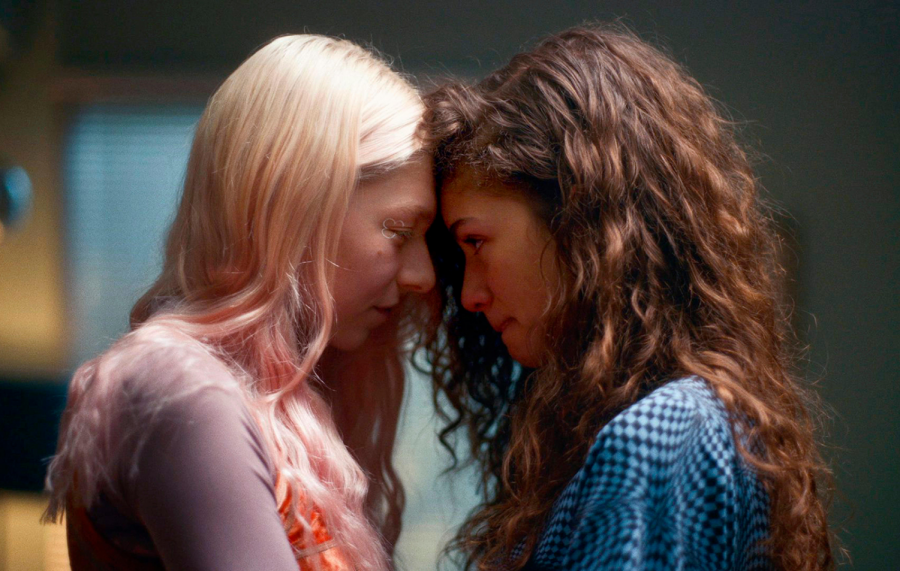Understanding Euphoria
How many viewers of Euphoria look past the complexity of the show.
Actresses Zendaya and Hunter Schafer in a scene from Euphoria.
September 29, 2020
Actress Zendaya was presented with an Emmy award on September 20, 2020, for her leading role as Rue in the HBO series “Euphoria.” Despite this honor, a majority of viewers who watch Euphoria do not recognize the depth and meaning behind many aspects of the program.
“Euphoria” depicts an intertwined story of teenagers plagued with drug addictions, who are in abusive relationships, dealing with their gender, and even their sexuality. Whether or not society recognizes it, teenagers partake in these behaviors and interactions constantly.
The show is a modern and arguably accurate look on teenage lives that I have seen polarizing opinions on. However, opinions on it varied depending on the age group.
It has become a trend among teenagers to follow the “Euphoria” aesthetic filled with 2000”s inspired makeup and fashion, which is heavily referenced in the show. I have also seen more than enough criticisms of the show online from adults for its openness in dealing with seldom talked about issues in graphic detail.
There is absolutely nothing wrong with enjoying “Euphoria” or even criticizing the show, but taking it at surface value as just an aesthetic? Dismissing it as just another smutty, provocative teen show that oversteps too many boundaries? These reactions ignore the story that Euphoria is trying to tell.
The angles “Euphoria” takes on toxic masculinity and how it leads to senseless violence against women and other people, the effects of pornography in society in desensitizing young people to sex and how that affects personal relationships, as well as the aftermath of trauma, are all portrayed with style and substance. This is entirely why “Euphoria” garnered critical acclaim in the first place.
However, the complexity of “Euphoria” fails to be recognized by many teenage viewers because of its pretty, polished package. It gets panned by adults because of how it shows sex, drugs, and their effects on teenagers.
Viewers of the show should try to look past the surface level of “Euphoria” and recognize how the issues it is depicting affect the teenagers around them. Like it or not, teenagers deal with addiction, mental illness, and toxic relationships more often than most would believe. These issues should not be ignored in favor of one’s personal aesthetic or moral views on how these issues should be shown.



